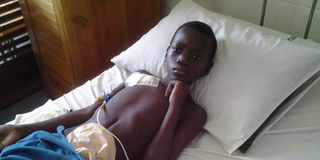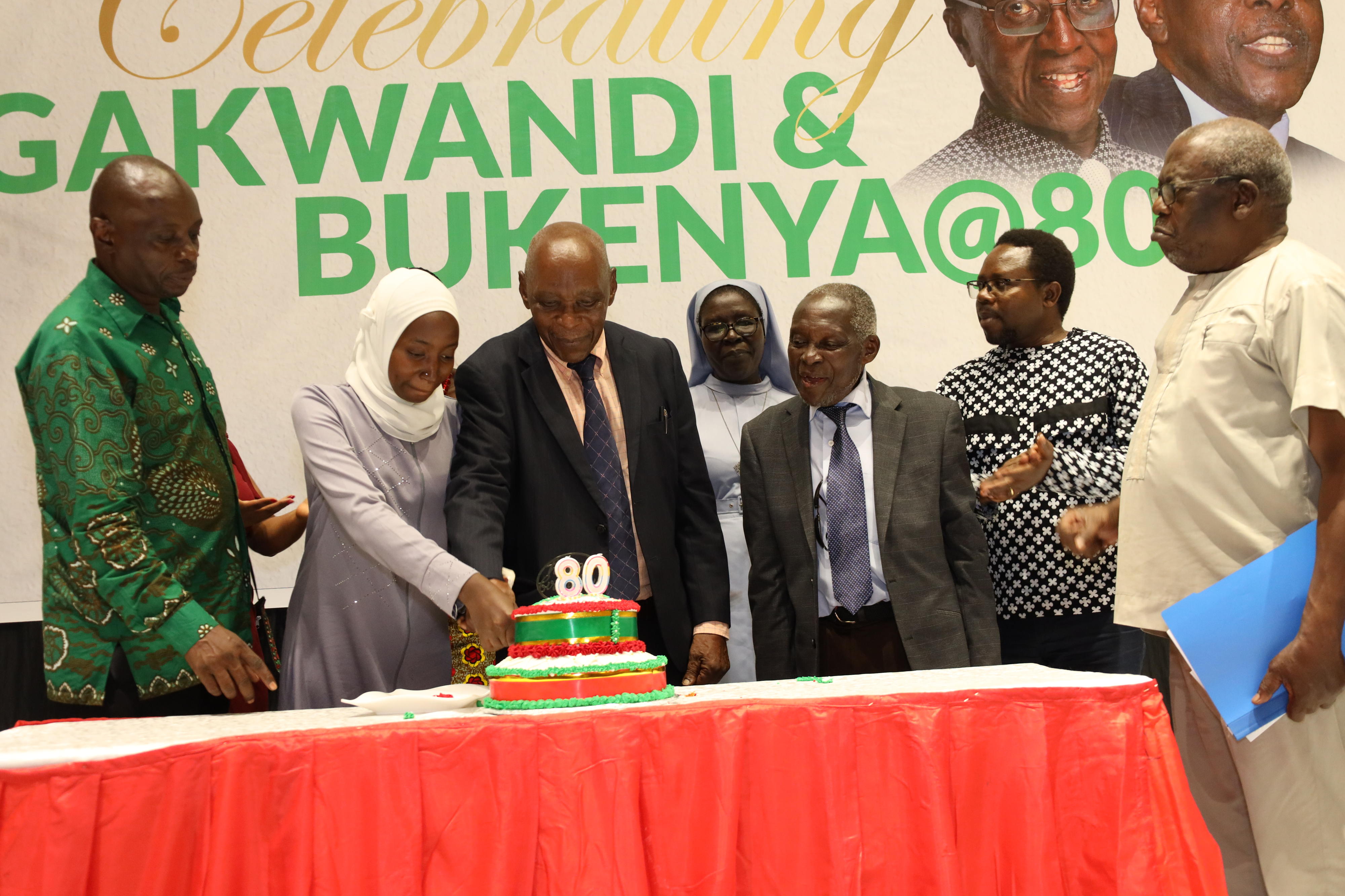A life changed because of fistula

Allan Sempagala is recovering from his last operation but he still needs all the support he can get. Photo by Rachel Ajwang
What you need to know:
With the help of media, they approached International Hospital Kampala (IHK). At IHK, Dr Ben Kiingi, a plastic and reconstructive surgeon assessed his condition and found him weak and malnourished.
Upon meeting him for the first time, Allan Sempagala would strike one as an easy going, fairly shy but happy young man. He has, however, battled illness for the last couple of years.
Sempagala was born on November 4, 2000.
The second of four siblings, he resides with his widowed mother Lillian Nansamba, who struggles to make ends meet. In November 2011, Sempagala developed headache, stomachache, which turned into diarrhoea, a fever, and vomiting.
Initially he was later rushed to Mulago National Referral Hospital but later transferred to Mengo Hospital where he was diagnosed with typhoid. At the hospital, his mother was told his intestines were unable to filter impurities.
After his first surgery, however, Sempagala started discharging water, then pus, from an incision on his stomach. That was when he was diagnosed with fistula. Not sure what to do next, on January 1, 2012, Sempagala was taken back to Mulago hospital but doctors declined to operate on him because he was too weak so he was discharged.
With the help of media, they approached International Hospital Kampala (IHK). At IHK, Dr Ben Kiingi, a plastic and reconstructive surgeon assessed his condition and found him weak and malnourished. He was fed through a central line for a month before he was strong enough for surgery.
Finally, on the eve of Christmas, 2012, Dr Kiingi and team were able to perform surgery which involved closing two holes in his intestines. He was able to start digesting food in small quantities. After another surgery, Nansamba was told Sempagala’s healing process would be gradual and was discharged in January 2013.
The happiness was short-lived though because last November, Sempagala was ill once again. The small hole on his stomach was leaking puss causing him distress. Dr Kiingi confirmed that Sempagala needed further surgery, but was optimistic that this time he stood a 70 per cent chance of beating the fistula for good.
The funding for his surgery was raised after the International Medical Foundation and International Hospital Kampala held “The Hope Ward Run,” which raised more than Shs9m to cover the cost of surgery and subsequent costs.
Since then, he has had two surgeries.Although stable, he has remained at IHK and has been able to feed normally. Even with these interventions, Sempagala had further surgery. He is in the ward where he is being monitored.
All funding that was collected for his treatment has been exhausted with his current medical bill running more than Shs30m. Dr Kiingi, says Sempagala had to be administered on kabiven feeds (parenteral nutrition) using a central line through the heart, connected to a vein that supplies the hand.
In terms of feeding, Dr Kiingi says Sempagala can eat soft food like matooke, rice and Irish potatoes but his (Dr Kiingi) only concern would be development of a complication called acute intestinal obstruction because his intestines have rested for the last three to four months without eating.
Motherly pain
Sempagala’s mother says that besides him missing out in school, he cannot play with his friends like he used to. With hopelessness written all over her face, she laments, “I am a tailor and the little I make I use it to support my family. Altogether I have four children and they go to school but because of Sempagala’s complications, they sometimes got to skip school because I don’t have money.”




